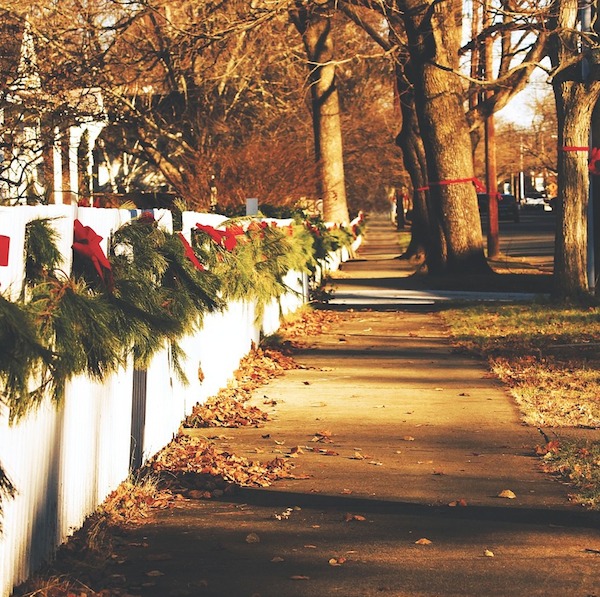
Contributed by Hal Chapel, CEO and Co-Founder of Lotsa Helping Hands
Community. A word that evokes many different images.
Not only are we social creatures, requiring interaction with other people, but historically our species has ultimately survived and thrived by banding together into social groups we call ‘community’. Community has not only provided protection in collective defense, but in the division and sharing of labor and resources. But perhaps community has been most significant in offering us fundamental meaning in life. At the end of the day, do we really judge the value of our lives by how much money we make or how many things we collect, or how much fame we achieve? Don’t we feel most satisfied when we know we have truly affected another person positively, when we have contributed to our own communities?
We all loosely belong to or identify with many different ‘communities’, from our families (birth and extended), to schools, neighborhood, city, nation, work, clubs, and religious groups, to name just a few. Because of its positive connotation, “community” was even appropriated by the internet in its earliest days. A very short history of the internet might go something like this:
If you build it they will come. Well, they came, so how do we get them to come back? Establish a sense of community! And so the concept of ‘community’ on the internet was born.
If you need to find comfort or information about Stage 3 lymphoma, for example, you can find an appropriate community on the web. Perhaps you’re just interested in chatting with similar people interested in the TV show ‘Modern Family’; there are scores of communities out there for you. While there is certainly great value in these virtual communities, there is even greater value when folks come together to share not just similar interests or ideas, but when we share in each other’s lives.
We have the profound honor at Lotsa Helping Hands of witnessing people discover that one of the greatest sources of intimacy is offering our time and assistance to those in need – and about opening our lives to these offers of help. At Lotsa Helping Hands, we power offline communities online. More than one million people have already experienced this intimacy, this sense of meaningfulness from participating in Lotsa Helping Hands private Communities. And 60,000 caregivers and their families have reaped more than the benefits of meals, transportation, and other physical help – they have experienced the deeper sense of intimacy and meaning from sharing their most vulnerable moments and discovering the sincere generosity provided by their Community Members.
We have received countless emails from Community Members expressing sentiments similar to Emily’s:
“I can’t thank you enough for providing your free service that allowed my aunt’s family to receive all the help and emotional support from over one hundred family, friends, and neighbors after she was critically injured in a car accident six months ago. We have no doubt that the support from our Lotsa Helping Hands Community was responsible for her miraculous and rapid recovery! And I suspect that many of us who provided help all these months discovered, as I did, the joy in helping without getting in the way. She’s doing fine now, but I’m actually feeling sadness in the ‘loss’ of providing help! I live in Racine Wisconsin – is there someone in my town that needs help, or a wounded veteran that could use assistance?”
Several weeks ago we released a major service upgrade at Lotsa Helping Hands. In addition to enhancing the features for all Communities, we formally introduced our Open Communities. For many years, our Private Communities have empowered a caregiver’s family, friends, neighbors, and colleagues – what we call their “circles of community” – to come together to provide support and help to the caregiver and family. Our Open Communities are created in local towns or neighborhoods to provide a place for caregivers to go to request help as well as for volunteers to offer help and lend a hand. While Private Communities generally help one family, and all the Community Members have some connection to that family, Open Communities commonly are set up to provide help to more than one family, and it might be the case that not all Members even personally know those being helped. Many towns, neighborhoods, schools, and religious institutions use the Open Community Model to create a network of willing volunteers ready to mobilize when help is needed.
Imagine if every town or local neighborhood had a Community with volunteers ready to help. Lotsa Helping Hands is supporting the coordination of volunteers, such as Emily, in towns and neighborhoods near you. If you’re interested in volunteering with an existing Open Community, you can search for one in your area by visiting our web site. If an Open Community does not exist in your town or neighborhood, perhaps you and your friends and neighbors can get together and create one.
Community is sustained by each individual’s responsibility to uphold their obligations as part of that community. It is often said that it takes a village to raise a child – and at Lotsa Helping Hands we believe that it takes a community to support the caregiver or anyone else in need of assistance. With the formal introduction of Open Communities, we are that much closer to our vision of a world where everyone can give and receive help through the power of community.

